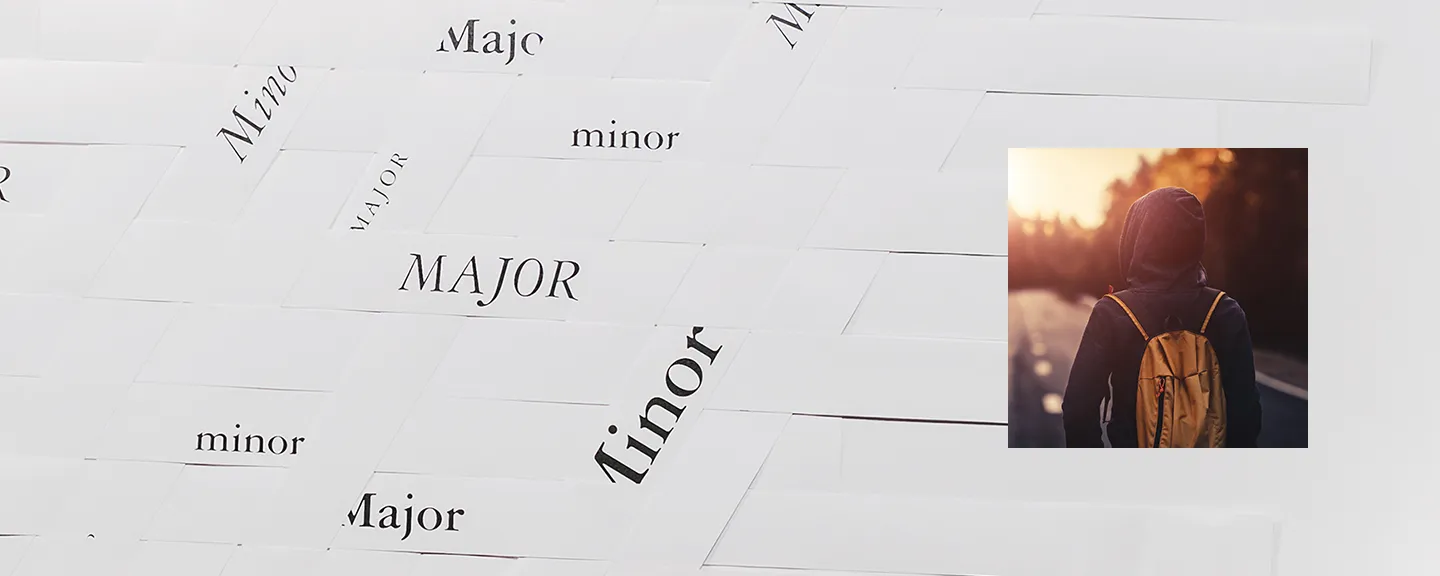- Home
- >
- APU Articles
- >
- News Article
Linking Interests: The Value of Adding an Academic Minor
October 02, 2017 | Written By Bethany Wagner

Every spring, millions of undergraduate students like Tillema venture into an increasingly competitive job marketplace. A recent study by LinkedIn found that today’s graduates will change jobs four times in their first decade out of college, compared to college graduates in 1986-90, who averaged only two job changes during that time. In this unpredictable economy, how can a college graduate stand out from the rest? One option APU offers has the potential to equip students with the stamina, breadth of knowledge, and flexibility to succeed in today’s workforce: the academic minor.
Students pursuing a minor choose a secondary discipline in addition to their major. From biology to music, art history to nutrition, marketing to international relations, APU offers 56 academic minors in a wide variety of fields, all requiring students to take six to eight courses in their chosen area. “Minors give students a framework to intentionally choose additional classes outside their major that build on each other, creating a solid skill set,” said Vicky Bowden, DNSc, RN, vice provost for undergraduate programs.
With minors that complement and focus their majors, students can apply their main studies in a specific context. For example, a business student can better understand the intricacies of the entertainment industry with a music minor, while a psychology student can prepare for running a private practice with a minor in entrepreneurship.
This year, APU established the practical and professional ethics minor with the goal of enriching students’ majors. “Every profession, including business, nursing, psychology, social work, law, and so on, has a code of conduct,” said Rico Vitz, Ph.D., the philosophy professor who spearheaded the program. “Employees should not only know this code, but also how to interpret and revise it to act ethically in new situations, as the needs of their professions evolve.” Students earning the minor in practical and professional ethics can take courses like Practical Ethics, Business Virtue and the Good Life, Biomedical Ethics, and Environmental Ethics, developing strong Christian values within the context of their chosen career fields.
Graduates with minors can also go into job interviews with additional practical skills that equip them to serve in their desired field more effectively. Bowden, a retired nurse and a professor in the School of Nursing, has witnessed firsthand the power of minors in healthcare careers. “Nursing students often choose minors that help them serve their future patients, and employers take notice,” said Bowden. “A minor in international studies opens doors for nurses to serve overseas or on the global mission field. A minor in Spanish boosts nurses’ capabilities to care for and communicate with patients both globally and in Southern California.”
In an economy where the average worker holds 10 jobs by the age of 42 (Department of Labor), minors can give students the ability to easily transition between positions and even career fields. “Minors provide a more diversified skill set that creates a more employable graduate,” said Philip Brazell ’08, M.A. ’13, executive director of career and alumni relations at APU, where thousands of students and alumni receive assistance exploring career options, applying for internships and jobs, crafting résumés, and pursuing graduate school. “Students with minors demonstrate that their interests reach beyond just one program or major. Hiring managers and graduate schools look for this kind of individual.”
Often, interweaving a minor with a major course of study leads students to discover new interests, talents, and callings. “It’s not uncommon for students to discover their love for philosophy later in their undergraduate experience when it’s too late to add the major, so they choose to minor in philosophy instead,” said Vitz. Recently, one of Vitz’s students minoring in philosophy decided that this field was his calling, applied to graduate school, and received a full-ride scholarship to one of the nation’s top philosophy doctoral programs.
Ultimately, minors communicate to potential employers and graduate schools a commitment to academic excellence and engagement with the world. “Students with minors show focus and direction, because they go beyond completing a degree and take initiative to enhance their own learning,” said Bowden. “Strong minor programs promote rich intellectual life and growth into well-rounded individuals.”